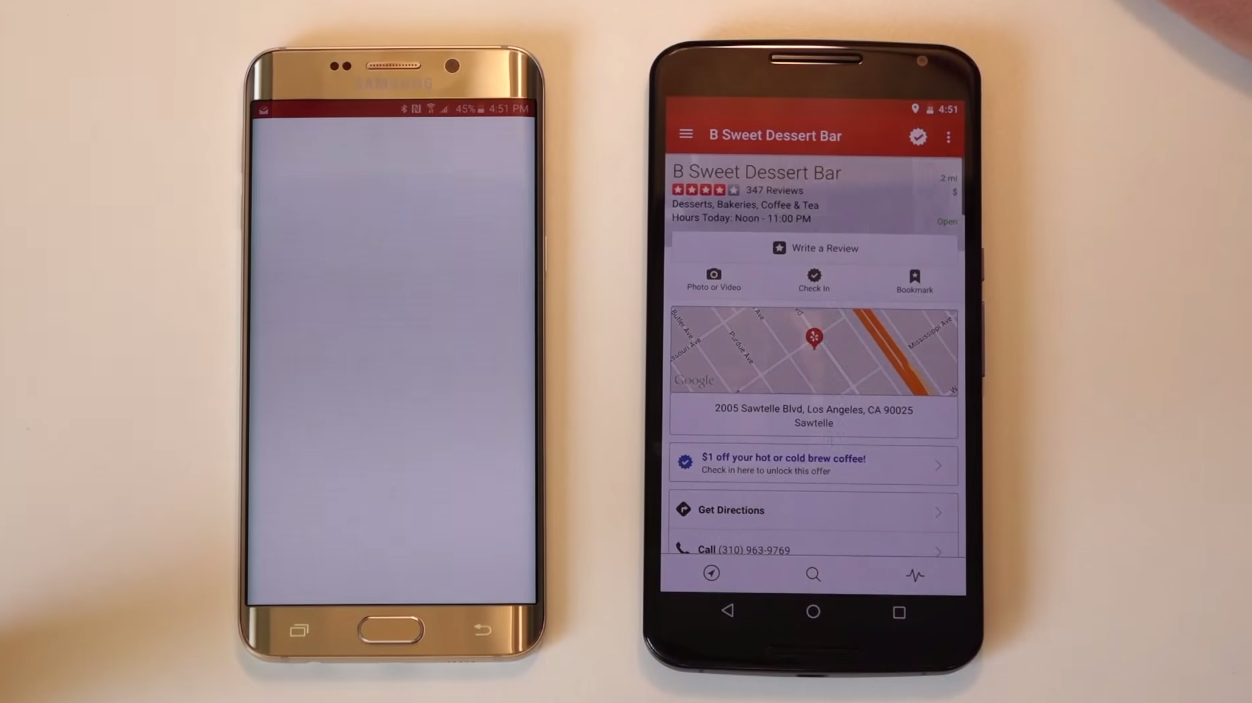While the Note 5 and S6 edge+ are far from the first Samsung phones with reported issues killing background tasks with unusual aggressiveness, they are the first ones with four freaking gigabytes of RAM to do so. We've long assumed that Samsung's background task issues on certain handsets are related to a lack of RAM headroom due to TouchWiz, and yet, the Note 5 and S6 edge+ may exhibit the most aggravating task killing of any Samsung devices we've yet seen. Let's cut to the video for a complete explanation. (I realize it's long, but I'd recommend watching all the way through to see what's going on here.)
[EMBED_YT]https://www.youtube.com/watch?v=DDWX6qJjY-0
[/EMBED_YT]
The issue was readily reproducible on both our S6 edge+ and Note 5 review units, and we aren't the first people to point this out. Essentially, if you run an app on the S6 edge+ or Note 5, then subsequently open four or five other apps in the meantime, going back to that first app almost invariably results in a full "reflow" of the application - meaning longer load times and more data usage.
Compared to a Nexus 6 opening the same apps in the same way after a handful of intervening loads of different apps, the S6 edge+ in our video here almost always reloads the background app more slowly. Differences in load times range from a fraction of a second in apps like Twitter to several seconds in apps like Yelp, Uber, and Chrome. Such a thing is clearly detrimental to overall user experience, no matter how you slice it. Sometimes this results in other annoyances, too, like reflows that send you to the incorrect scroll point in a given application. Basically, it's not pretty - when a Nexus 6 with less and slower RAM, a slower processor, and slower storage is easily pulling up background tasks more quickly and reliably than the substantially more powerful S6 edge+, you know something weird is going on.
What is that something? We really don't know. There's speculation this is some kind of power-saving feature - an attempt to nuke background tasks so that they aren't using CPU time or extra RAM when they're not in the foreground of the OS. Given that both the S6 edge+ and Note 5 have a smaller battery than last year's Note 4 and Note Edge, this theory at least seems plausible, even if there's no direct evidence for it as of yet.
We'll be reaching out to Samsung for comment on this story shortly (though it's the weekend, so we may have to wait a bit), but suffice it to say, this is exactly the sort of problem that turns people off of TouchWiz. It seems like cutting off your toes to meet weigh-in for a boxing match - ill-advised and pretty clearly a net performance loss, despite whatever other benefits such a strategy could offer.
I'll also say that my anecdotal experience with battery life on both of these phones hasn't been great so far, so it's not like we're getting incredible off-charger time in exchange for enduring the background task guillotine. You can expect our full review of the Note 5 and S6 edge+ (we're combining them because they really are basically the same phone) in the next couple of weeks.

